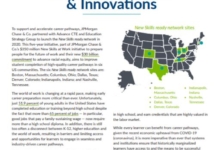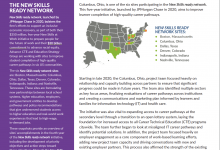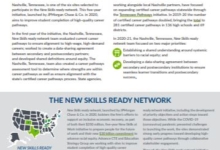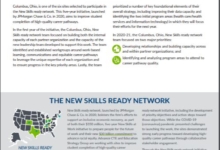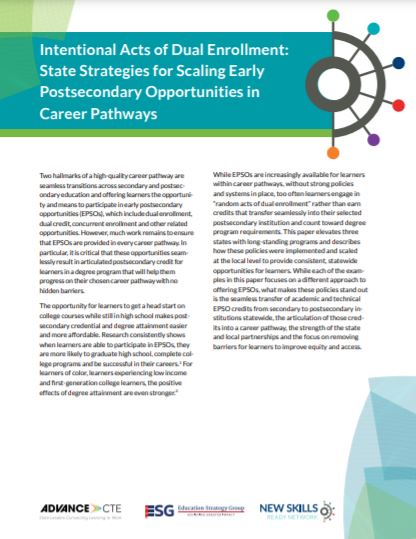While about three-fourths of all public school districts offer dual credit opportunities in Career Technical Education (CTE) courses, many programs face gaps in alignment between secondary and postsecondary CTE programs that lead to quality and equity inconsistencies in early postsecondary opportunities (EPSOs) across career pathways, ultimately keeping learners from fully leveraging these valuable opportunities. This policy brief by Advance CTE, in partnership with Education Strategy Group through JPMorgan Chase & Co.’s New Skills ready network is part of a collection of policy briefs centered on building better pathways, and offers best practices for designing strong statewide policies for removing barriers for participation in EPSOs in postsecondary credential and degree programs that lead to high-skill, high-wage and in-demand careers.
When states build more cohesive systems where early postsecondary opportunities (EPSOs) such as dual enrollment are fully counted, valued and portable, learners have more equitable paths to college and career success. This brief provides four key strategies to achieve this goal and highlights effective programs in Ohio, Tennessee and Utah:
- Advancing buy-in and systems alignment through institutional partnerships
- Building robust and streamlined state policy that builds EPSOs into career pathways
- Funding EPSOs on the margins through state incentives to remove financial barriers for learners
- Prioritizing equity and removing burdensome admission and administrative barriers to participation


